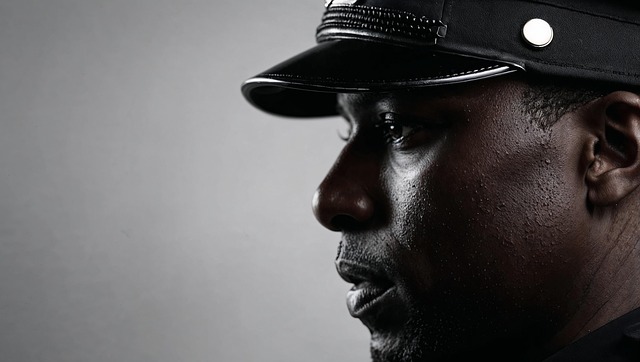Antitrust laws protect fair competition and consumers. The "Criminal Procedure Appeal Process Explained" guides challenges to antitrust violation charges, ensuring due process and fairness. This process involves appellate courts reviewing evidence and arguments, offering a safety net against unjust outcomes. Convictions carry severe penalties, making specialized legal defense crucial. Understanding the appeal process is vital for justice in complex cases like antitrust violations, benefiting philanthropy and politics by maintaining legal integrity.
In today’s competitive markets, understanding antitrust laws and their purpose is paramount for businesses and consumers alike. This article delves into the intricate world of antitrust violations, exploring what constitutes illegal practices, the criminal procedure appeal process explained, and potential consequences of conviction.
We dissect defense strategies, providing insights into navigating the complex legal landscape surrounding antitrust cases. By understanding these dynamics, businesses can better protect themselves and ensure fair market competition.
- Understanding Antitrust Laws and Their Purpose
- What Constitutes an Antitrust Violation?
- The Criminal Procedure Appeal Process
- Consequences of Conviction and Defense Strategies
Understanding Antitrust Laws and Their Purpose

Antitrust laws are designed to promote fair competition in the marketplace and protect consumers from anti-competitive practices. These laws aim to prevent businesses from engaging in activities that could stifle market competition, such as forming illegal cartels or abusing dominant market positions. Understanding these regulations is crucial for both businesses and legal professionals, especially those involved in white-collar defense cases.
The Criminal Procedure Appeal Process Explained plays a significant role in ensuring that antitrust violations are addressed appropriately. Through this process, companies or individuals accused of such offenses can seek legal recourse if they believe their rights have been infringed upon during investigation or prosecution. Achieving extraordinary results in these cases often requires a deep understanding of both the complex antitrust regulations and the intricacies of the appeal process, ultimately aiming for outcomes that uphold fair market practices.
What Constitutes an Antitrust Violation?

An antitrust violation occurs when businesses engage in practices that restrict competition or distort market forces. This can take various forms, including price-fixing, market allocation, and abuse of dominant market position. These behaviors are contrary to the principles of fair trade and free markets, which promote competition and consumer welfare.
The criminal procedure appeal process for antitrust violation cases involves navigating all stages of the investigative and enforcement process. If charges are filed, defendants have the right to legal representation and due process. The goal is to ensure a fair trial where evidence is presented, arguments are heard, and a judgment is made. A complete dismissal of all charges may be possible if the prosecution fails to prove the violation beyond a reasonable doubt or if significant procedural errors occur during the investigation or enforcement stages, reflecting the importance of maintaining integrity within both business practices and legal proceedings for thriving Philanthropic and political communities.
The Criminal Procedure Appeal Process

The Criminal Procedure Appeal Process Explained
When a conviction for an antitrust violation is handed down, defendants have the right to appeal, aiming to achieve extraordinary results through the general criminal defense strategy. This process involves navigating a series of steps within the legal system, starting with a notice of appeal filed with the trial court. The appeal then moves forward to a higher court, where judges scrutinize the case’s merits, considering evidence and arguments presented by both parties.
This appeals process is designed to ensure fairness and provide an opportunity for errors or misinterpretations during the original trial to be corrected. It allows defendants to challenge the conviction, potentially securing a new trial or even acquittal if successful. The philanthropic and political communities benefit from this mechanism as it upholds the integrity of legal proceedings while offering a safety net against unjust outcomes.
Consequences of Conviction and Defense Strategies

A conviction for an antitrust violation can have severe consequences for individuals and businesses alike. The impact extends beyond financial penalties; it can damage reputations and disrupt operations, especially for companies that heavily rely on market dominance or specific industry positions. Sentences often include substantial fines, asset forfeiture, and in some cases, imprisonment. These punishments are designed to deter future violations and protect fair competition within the marketplace.
Defending against antitrust charges is a complex legal endeavor requiring skilled attorneys who specialize in this area of law, like those found in general criminal defense practices. Strategies may involve challenging the evidence presented by prosecutors, questioning the interpretation of relevant laws, and arguing for the innocence of their clients. The Criminal Procedure Appeal Process Explained offers a route for appealing decisions, ensuring that justice is served and the rights of those accused are protected within the legal framework, particularly when addressing complex cases like antitrust violations. For his clients, well-prepared defense strategies can lead to reduced charges, acquittals, or mitigated sentences, safeguarding their interests in the philanthropy and political communities they serve.
Antitrust violation cases are complex, but understanding the legal framework is key. By comprehending what constitutes an antitrust breach, individuals can navigate the Criminal Procedure Appeal Process explained in this article and protect their rights. Whether facing criminal charges or seeking a defense strategy, knowing your options is paramount. This guide provides insights into the consequences of conviction and offers a roadmap for those involved, ensuring they are equipped with knowledge to advocate for themselves effectively.






